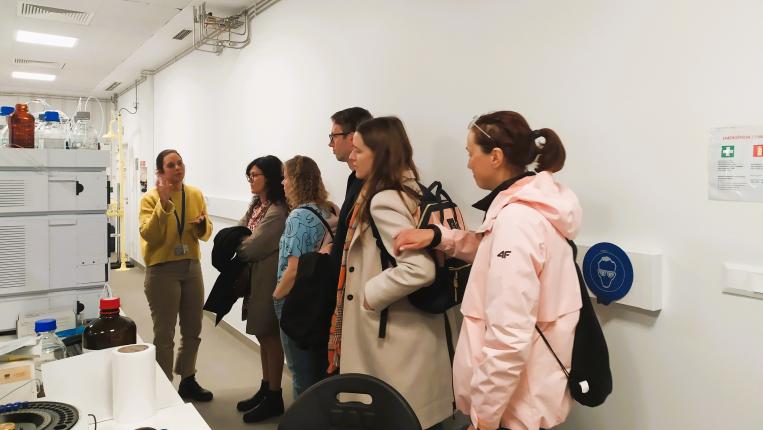gBiot is the name of the new research project that intends to develop a micro-robotic prototype, also called microbot, for nutraceuticals and therapeutic foods performing intelligent functions to treat gastrointestinal disorders. A project developed by researchers from the Centre for Biotechnology and Fine Chemistry (CBQF/ESB/Universidade Católica Portuguesa) and i3S – Institute for Research and Innovation in Health, funded by the Foundation for Science and Technology (FCT) which began in March 2023.
To address unmet needs in gastrointestinal disorders, gBiOT aims to create biocompatible microbots capable of actively identifying inflamed areas and delivering targeted drug treatments. This project marks one step forward in pursuing sustainable methodologies and improved patient quality of life.
"Current drug delivery systems for gut health are limited in their effectiveness and often face significant challenges in reaching the targeted areas of the gastrointestinal tract," emphasizes Ezequiel Coscueta, a young CBQF researcher and the project leader. "With gBiOT, we are creating biocompatible microbots that can actively identify inflamed areas and release natural bioactive compounds, providing a more proactive and efficient approach to treating gastrointestinal disorders."
The project's objectives encompass the development of functionalized microbots capable of assessing microbiota interactions and conducting preclinical tests. By combining advanced technology and understanding gastrointestinal disorders, gBiOT aims to develop practical solutions that will prophylactically manage and control gastrointestinal diseases while minimizing the impact on patient quality of life.
Gastrointestinal disorders are prevalent and have far-reaching consequences, including neoplasia and cancer. Recognizing the urgent need for advancements in this field, gBiOT leverages recent breakthroughs in nanotechnology to enhance the development of health-food products containing microsized ingredients.
In recognition of the project's potential impact and approach, gBiOT was selected to be present at the XXIX Porto Cancer Meeting that took place on 11-12 May 2023. This international gathering, organized by Ipatimup and anchored on i3S, was focused on glycosylation in tumor biology and its clinical implications and explored the pivotal role complex carbohydrates, known as glycans, play in cancer biology and their significance in diagnosis, cancer progression, and treatment.

Ana Sofia Sousa, researcher representing gBiOT (on the left), and Gabriel Rabinovich, Director of the Laboratory of Glycomedicine at the Institute of Biology and Experimental Medicine (Argentina) and speaker at the XXIX Porto Cancer Meeting (on the right)
The gBiOT project represents a positive step towards the improvement of nutraceuticals and therapeutic foods for gastrointestinal tract disorders. By harnessing micro-robotic technology, gBiOT aims to provide proactive and targeted treatment options that can alleviate abnormalities in the gastrointestinal tract.
To stay updated on the latest developments and breakthroughs in the gBiOT project, follow the Twitter and LinkedIn pages.



